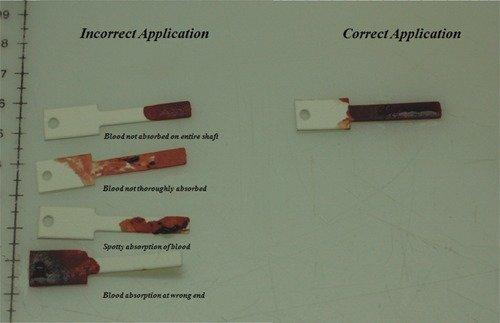Nobuto Filter Strips for Studying Wild Animal Populations

Nobuto Blood Filter strips are an easy and portable method of collecting wildlife samples in the field. Typically used by researchers in diagnosing common bird diseases, they can be utilized in testing wild animals for a whole host of zoonotic pathogens including toxoplasmosis, hantaviruses, measles, plague, and tularemia.1,2 In fact, scientists often collaborate with local hunters and trappers to collect data from their harvests.
Made from high-purity cellulose fibers, Nobuto filter strips are structured for uniform sampling. Each strip holds approximately 0.1 mL of blood or 0.04 mL of serum.
Once blood is applied and the strip has dried, researchers can analyze, store, or mail the samples without refrigeration. Downstream testing for antibodies (i.e. ELISA) is employed to diagnose disease.3 They have proven a valuable tool in surveillance of avian influenza viruses, Newcastle disease virus (NDV), and West Nile virus (WNV) in wild birds. The strips can also be used in environmental studies, enabling researchers to monitor wild animals for heavy metal and toxin levels.4
Studies have shown that these filter strips are easy to use and enable delayed analysis of blood samples, enabling improved tracking of diseases within wild animal populations.5 Sterlitech offers Nobuto blood filter strips in packs of 100 with plastic drying racks that hold up to 40 strips at one time.
- Most Viewed Blog Articles (5)
- Company News (285)
- Emerging Technologies (64)
- Microbiology and Life Science News (93)
- Water and Fluid Separation News (97)
- Filtration Resources (93)
- Product News (19)


![Join Sterlitech at BIO 2024 [Booth #5558]: Exploring the Future of Biotechnology](https://www.sterlitech.com/media/blog/cache/300x200/magefan_blog/b4.jpeg)



